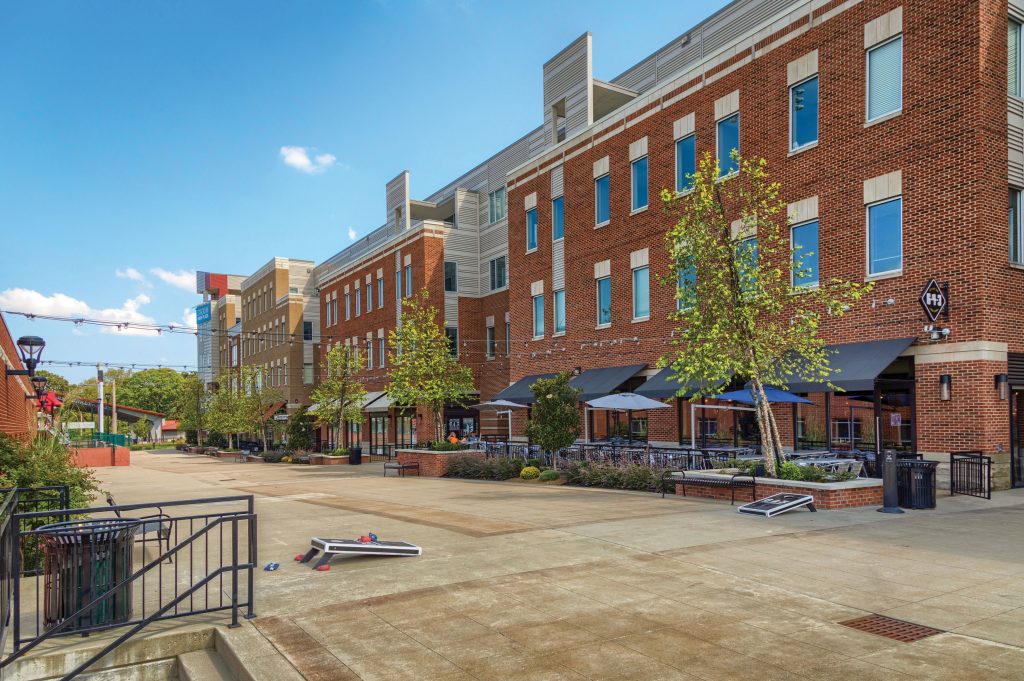The term “bowling green” refers to a patch of grass on which people participate in the sport of lawn bowling.
So, how exactly did Bowling Green become “Bowling Green?”
The short answer: No one knows for sure.
Much debate and speculation surround its origins, seeing as the early settlers didn’t document their reasons.
One of the more prevalent theories states the pioneers coined the new settlement “Bolin Green” in 1798 after Bowling Green Square, New York’s oldest park located in Lower Manhattan. In the 1730s, some New Yorkers did “bowl on the green,” according to a 1987 article by Robert Rennick, an authority on Kentucky place names. Patriots pulled down a statue of King George III in New York’s Bowling Green Square and used the lead to make bullets during the American Revolution, according to bgky.org.
Rennick’s article compared this to the naming of Lexington, stating “this kind of rashness” displayed in the American Revolution “appealed to many early Kentuckians.”
Jonathan Jeffrey, department head for the Department of Library Special Collections and coordinator for Manuscripts & Folklife Archives, said this theory is the most logical answer, although he remains skeptical.
“There really is no definitive answer,” Jeffrey said.
Brothers George and Robert Moore are credited with founding Bowling Green in 1780 after they moved to the area reportedly from Rockcastle County, Va., according to manuscripts and folklife archives in the Kentucky Library and Museum’s Department of Library Special Collections. The brothers initially donated a two-acre plot on which to build a log county courthouse and jail, according to bgky.org. The plot is now home to Fountain Square Park. Later, the brothers donated an additional 30 acres, thus “Bolin Green” was born.
However, according to the book, Bowling Green: A Pictorial History, there is no indication of why the first settlers chose the name.
“The extant minutes give no clues,” it stated.
In some early records, “Bolin Green” was written as one word. Some people even wrote it as Bowlinggreen, according to the book.
Rennick’s report offered other theories: The namesake comes from Robert and George Moore’s sport of bowling wooden balls across the green or from “Bowling Green, Virginia, whence many Warren County settlers are believed to have come.”
Rennick’s report also refutes these theories, stating “it is not known, for a fact,” the Bowling Green, Ky., pioneer settlers came from this section of Virginia nor is there a documented reason as to why the early settlers “would have commemorated the name of the Virginia community.”
Jeffrey agreed with Rennick’s article. He said there weren’t many people from Bowling Green, Va., who had moved to this region.
Bowling Green: A Pictorial History states that “mention of the game does not appear in available records until nearly a decade after the town’s birth.”
Jeffrey said he had read the articles that mention “a ball alley” near George Moore’s home, but the authors didn’t cite specific documents.
“I’ve been doing this work for 28 years, and I have never seen in any document a mention of a ‘ball alley’ near G. Moore’s home,” Jeffrey said in an email.
A Bowling Green city flag once showed the game of 10 pins in its field, according to a 1993 Daily News article.
“… A testimony to how widely misconstrued the origin of the city’s name is,” said Riley Handy, the late and former department head of Libraries and Special Collections at the Kentucky Library, in the article.
Another theory suggested the pioneers named the Kentucky town after the village of Bowling Green in Holmes County, Miss.
Some people speculate early settlers named those towns after the game of lawn bowling, but in an article in the Colonial Williamsburg Magazine in 1999, the writer dismisses this claim.
“There is little to tie lawn bowling to those towns,” the article stated.
There isn’t any conclusive evidence backing the numerous theories in regards to Bowling Green’s namesake, Jeffrey said. There are merely small mentions of the town’s origin dispersed throughout secondhand reports.
So, unless more documents begin to surface, citizens might never have an answer as to why Bowling Green is “Bowling Green.”
